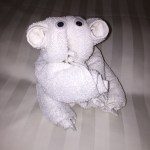I’m trying out something different this week. I have three blogs:
- Notes in the Margin: about books, authors, reading, and all things literary
- Change of Perspective: about psychology, life stories, memoirs, and writing
- Retreading for Retirement: my personal blog about retirement, aging, and moving to a new city
Because of these wide-ranging interests, I often end up with lots of open browser tabs containing quite a variety of materials.
Since sorting all these materials out for the individual blogs can be quite time-consuming, I’m going to try to streamline my blogging process by putting together a weekly list of all the interesting articles I come across and publishing the same post to all three of the blogs. Feel free to click on whichever links interest you and to ignore the rest.
Note: In compiling this initial list, I discovered that I’ve actually been holding many of these tabs open for two weeks. Therefore, this entry is longer than future ones will probably be.
![]()
Taking On the Ph.D. Later in Life
While the overall age of Ph.D. candidates has dropped in the last decade, about 14 percent of all doctoral recipients are over age 40, according to the National Science Foundation. Relatively few students work on Ph.D.s [in their 60s], but educators are seeing increasing enrollment in doctoral programs by students in their 40s and 50s. Many candidates hope doctorates will help them advance careers in business, government and nonprofit organizations; some … are headed for academic research or teaching positions.
This article caught my eye because I started working on a doctorate at age 57 and finally received my degree on my 63rd birthday. About 30 years earlier I had completed the course work but not the dissertation for a doctorate in English and American literature. My main motivation for returning to school was to fulfill a life-long dream of earning a Ph.D., but I also benefitted from being able to focus my studies on the particular area I was interested in (life stories).
You Can Go Home Again: The Transformative Joy Of Rereading
Returning to a book you’ve read multiple times can feel like drinks with an old friend. There’s a welcome familiarity — but also sometimes a slight suspicion that time has changed you both, and thus the relationship. But books don’t change, people do. And that’s what makes the act of rereading so rich and transformative.
Juan Vidal explains why he rereads three books every year: A Moveable Feast by Ernest Hemingway, Holy the Firm by Annie Dillard, and Save Twilight: Selected Poems by Julio Cortázar.
Michael Kinsley’s ‘Old Age: A Beginner’s Guide’
Longevity breeds literature. As people (including writers) live longer thanks to medical advances, we can expect many more books contemplating the vicissitudes of aging, illness and dying. These topics, previously thought uncommercial, not to mention unsexy, have been eloquently explored recently by Diana Athill (“Somewhere Towards the End”), Roger Angell (“This Old Man”) and Christopher Hitchens (“Mortality”), among others. Now that the baby boom generation, defined as those born between 1946 and 1964, “enter life’s last chapter,” Michael Kinsley writes, “there is going to be a tsunami of books about health issues by every boomer journalist who has any, which ultimately will be all of them.” Hoping to scoop the others, he has written “Old Age,” a short, witty “beginner’s guide,” with an appropriate blend of sincerity and opportunism.
100 MUST-READ WORKS OF SOUTHERN LITERATURE
Literature of the American South comprises more than just Harper Lee’s To Kill a Mockingbird and the works of William Faulkner. Here Emily Gatlin provides a class list of the full range of works that illustrate the Southern literary experience.
‘Literature about medicine may be all that can save us’
A new generation of doctor writers is investigating the mysteries of the medical profession, exploring the vital intersection between science and art
In telling the stories of illness, we need to tell the stories of the lives within which illness is embedded. Neither humanism nor medicine can explain much without the other, and so many people ricochet between two ways of describing their very being. This is in part because medicine has become so much harder to understand, with its designer molecules, bewildering toxins and digital cameras inserted into parts of ourselves we have never seen, nor wanted to see.
Telling the stories of illness has given rise to a movement known as “narrative medicine,” or, more broadly, “medical humanities.” We are seeing more and more memoirs by patients about their experiences of illness and by doctors about their attempts to understand their patients’ stories. Many of the books by physicians include their authors’ own experiences of being ill.
Books by physicians concerned about understanding patients’ stories of illness discussed here include the following:
Complications: A Surgeon’s Notes on an Imperfect Science by Atul Gawande
Being Mortal by Atul Gawande
Do No Harm: Stories of Life, Death and Brain Surgery by Henry Marsh
What Doctors Feel by Danielle Ofri
The Emperor of All Maladies: A Biography of Cancer by Siddhartha Mukherjee
When Breath Becomes Air by Paul Kalanithi
Adventures in Human Being by Gavin Francis
The Best Music for Staying Productive at Work, Backed by Science
I always used to want complete quiet when reading or concentrating, but when I went back to school I discovered that certain types of music could help me focus. This article summarizes the research demonstrating how music can increase concentration and discusses which types of music work best for this purpose.
The best part of this article is the links to examples of music for focus in these categories: classical, electronic, video game soundtracks, ambient noise, and “everything else.”
Neuroscientists create ‘atlas’ showing how words are organised in the brain
Scientists have created an “atlas of the brain” that reveals how the meanings of words are arranged across different regions of the organ.
Described as a “tour de force” by one researcher who was not involved in the study, the atlas demonstrates how modern imaging can transform our knowledge of how the brain performs some of its most important tasks. With further advances, the technology could have a profound impact on medicine and other fields.
Thinking Beyond Money in Retirement
After a career of working, scrimping and saving, many retirees are well prepared financially to stop earning a living. But how do you find meaning, identity and purpose in the remaining years of your life?
WOMEN DETECTIVES IN FACT AND FICTION
This excerpt from Pistols and Petticoats: 175 Years of Lady Detectives in Fact and Fiction by Erika Janik discusses the female detectives, real and literary, who preceded Sue Grafton’s Kinsey Millhone and Sara Paretsky’s V.I. Warshawski.
© 2016 by Mary Daniels Brown














 Long before Mary Higgins Clark took over as the reigning queen of romantic suspense, she concentrated on the suspense part. From childhood she had loved suspense stories, first books featuring girl detectives like Judy Bolton and Nancy Drew, and later books by authors including Agatha Christie, Josephine Tey, Ngaio Marsh, and Daphne du Maurier. Clark’s first published book was a collection of stories. Her second book, published in 1975, was Where Are the Children?, her first novel.
Long before Mary Higgins Clark took over as the reigning queen of romantic suspense, she concentrated on the suspense part. From childhood she had loved suspense stories, first books featuring girl detectives like Judy Bolton and Nancy Drew, and later books by authors including Agatha Christie, Josephine Tey, Ngaio Marsh, and Daphne du Maurier. Clark’s first published book was a collection of stories. Her second book, published in 1975, was Where Are the Children?, her first novel. Sylvia Plath’s autobiographical novel was first published in England in 1963 under the pseudonym Victoria Lucas. Plath died by suicide a month after that publication. The novel was first published under Plath’s own name in 1967. Through the influence of her husband, poet Ted Hughes, and her mother, the book was not published in the United States until 1971.
Sylvia Plath’s autobiographical novel was first published in England in 1963 under the pseudonym Victoria Lucas. Plath died by suicide a month after that publication. The novel was first published under Plath’s own name in 1967. Through the influence of her husband, poet Ted Hughes, and her mother, the book was not published in the United States until 1971. Published in 1965, this short novel provides an image of American life at that time. Joey Robinson, age 35 and a resident of New York City, brings his second wife, Peggy, and his 11-year-old stepson, Richard, to visit his mother on the rural Pennsylvania farm where Joey spent his adolescence. The farm belongs to Joey’s mother; his father, recently dead, was never happy here. His mother is aging and can no longer care for the farm on her own.
Published in 1965, this short novel provides an image of American life at that time. Joey Robinson, age 35 and a resident of New York City, brings his second wife, Peggy, and his 11-year-old stepson, Richard, to visit his mother on the rural Pennsylvania farm where Joey spent his adolescence. The farm belongs to Joey’s mother; his father, recently dead, was never happy here. His mother is aging and can no longer care for the farm on her own.


